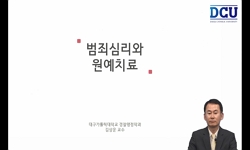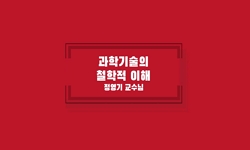장애아동 가족은 장애아동의 출산으로 예상하지 못한 위기에 직면하게 되면서 만성적 가족 스트레스를 경험하게 된다. 이에 본 연구는 위기상황에 처한 장애아동 가족에게 가족탄력성에 기...
http://chineseinput.net/에서 pinyin(병음)방식으로 중국어를 변환할 수 있습니다.
변환된 중국어를 복사하여 사용하시면 됩니다.
- 中文 을 입력하시려면 zhongwen을 입력하시고 space를누르시면됩니다.
- 北京 을 입력하시려면 beijing을 입력하시고 space를 누르시면 됩니다.
가족탄력성에 기초한 원예치료가 장애아동 가족의 가족적응 향상에 미치는 영향 = Effect of Horticultural Therapy Based upon Family Resilience on the Improvement of Family Adaptation of Disable Children's Family
한글로보기https://www.riss.kr/link?id=T12088773
- 저자
-
발행사항
서울 : 건국대학교 농축대학원, 2010
-
학위논문사항
학위논문(석사) -- 건국대학교 농축대학원 , 원예치료학과 , 2010. 8
-
발행연도
2010
-
작성언어
한국어
- 주제어
-
DDC
615.8515 판사항(22)
-
발행국(도시)
서울
-
형태사항
143 p. : 삽도 ; 26 cm
-
일반주기명
지도교수: 손기철
참고문헌: p. 91-100 - 소장기관
-
0
상세조회 -
0
다운로드
부가정보
국문 초록 (Abstract)
장애아동 가족은 장애아동의 출산으로 예상하지 못한 위기에 직면하게 되면서 만성적 가족 스트레스를 경험하게 된다. 이에 본 연구는 위기상황에 처한 장애아동 가족에게 가족탄력성에 기초한 원예치료를 실시하여 가족적응을 돕고자 하였다. 연구대상은 장애아동 부모, 장애아동, 비장애형제 4인으로 구성된 14가족으로, 경기도 K시에 위치한 ○○장애인복지관을 이용하여 실험군 7가족에게 원예치료 프로그램을 실시하였고, 대조군 7가족에게는 원예치료 프로그램을 실시하지 않았다. 연구기간은 2009년 3월부터 12월까지 격주 토요일, 120분씩, 18회를 실시하였다. 원예치료 동안 가족탄력성 하위 요인인 신념체계, 조직패턴, 의사소통 과정을 매회기에 적용하여 실시하였다. 평가도구는 가족탄력성 척도, 장애아동의 사회적 기술 평정 척도, 장애아동에 대한 비장애형제의 행동 평정 척도, 가족적응 척도를 사용하였으며, 원예치료 실시 전․후에 평가하였다. 원예치료 실시 전·후 대조군과 실험군의 효과성 비교 결과, 실험군에서는 가족탄력성 척도의 하위 요인인 신념체계의 가족통제감과 장애에 대한 가족의 태도, 조직패턴의 역할 안정성, 응집력과 가족자원, 의사소통 과정의 문제해결이 유의하게 증가되었으며, 신념체계의 가족강점과 의사소통 과정의 의사소통과 정서반응은 유의한 변화가 없었다. 장애아동의 사회적 기술 평정 척도의 하위 요인인 협력하기, 주장하기, 자기통제, 합계는 유의하게 향상되었다. 장애아동에 대한 비장애형제의 행동 평정 척도의 긍정적 행동인 수용도와 지지의 유의미한 향상을 보였으나, 부정적 행동인 적대감과 당황은 유의한 차이가 없었다. 또한, 원예치료 실시 후 실험군과 대조군의 가족적응을 비교한 결과, 실험군은 유의한 향상이 있는 반면, 대조군은 유의한 변화가 없었다. 이러한 결과로, 가족탄력성에 기초한 원예치료는 장애아동 가족의 가족탄력성을 강화하고 장애아동의 사회적 기술과 비장애형제의 긍정적 행동을 증가시켜 가족적응 향상에 효과적이라고 판단된다.
다국어 초록 (Multilingual Abstract)
The family of disabled children experiences chronic stress in the family as they face conflict with the birth of a child with disabilities. This research focuses on helping the family adapt by conducting horticultural therapy based upon family resilie...
The family of disabled children experiences chronic stress in the family as they face conflict with the birth of a child with disabilities. This research focuses on helping the family adapt by conducting horticultural therapy based upon family resilience for the disabled children's family. The research subjects are composed of 14 families respectively with four members including the parents of the child with disability, the disabled child and the non-disabled sibling of the child with disability contacted from Center for Handicapped Person in K city of Gyeongggi-do. A horticultural therapy program was conducted on the experimental group composed of 7 families while the control group, also composed of 7 families, did not receive any activity for horticultural therapy. The research was conducted over a total of 18 sessions each lasting 120 minutes on every other Saturday from March to December in 2009. Subordinate factors of family resilience such as belief systems, organizational patterns, communication processes were applied for each session of the program. Evaluation tools used before and after the horticultural therapy included family resilience scale, social skills rating system, Schaeffer sibling behavior rating scale, and family adaptation scale. Comparisons between the experimental group and the control group before and after the horticultural therapy revealed meaningful increase in the family resilience scale subordinate factor such as family sense of control regarding belief systems, attitude toward disabled people, and role performance, cohesion, and family inventory of resources in the organizational patterns, and problem solving in the communication process. However there were no significant changes in family strength of the belief system or communication and affective responsiveness in the communication processes. On the other hand, the subordinate factors of social skills rating system for the disabled children such as cooperation, assertion, self-control, and the total showed meaningful improvements. Furthermore, positive behavior, reception, and support under Schaeffer sibling behavior rating scale for non-disabled siblings showed meaningful improvements but there were no significant differences in negative behaviors such as hostility and confusion. In addition, comparisons between the experimental and control groups on family's adaptation revealed that the experimental group had meaningful improvements while there were no meaningful changes in the control group. In conclusion, horticultural therapy based upon family resilience is effective for strengthening family resilience of the disabled children's family, improving the social skills of the disabled children and increasing the positive behavior of non-disable sibling.
목차 (Table of Contents)
- Ⅰ. 서 언 = 1
- Ⅱ. 연구사 = 4
- 1. 장애아동 가족 = 4
- 2. 가족탄력성 = 8
- 3. 원예치료와 가족탄력성과의 관계 = 12
- Ⅰ. 서 언 = 1
- Ⅱ. 연구사 = 4
- 1. 장애아동 가족 = 4
- 2. 가족탄력성 = 8
- 3. 원예치료와 가족탄력성과의 관계 = 12
- 4. 협동작업으로 사회성 향상을 도모한 원예활동 = 15
- Ⅲ. 연구방법 = 16
- 1. 연구목적 = 16
- 2. 연구대상 = 18
- 3. 연구기간 = 22
- 4. 원예치료 팀 = 22
- 5. 치료적 환경 = 22
- 6. 원예치료 프로그램 설계 = 24
- 7. 가족탄력성에 기초한 원예치료 프로그램 선정 = 27
- 8. 가족탄력성에 기초한 원예치료 프로그램 구성 = 31
- 9. 평가 및 분석 = 50
- 10. 연구의 제한점 = 53
- Ⅳ. 결과 및 고찰 = 54
- 1. 대조군과 실험군의 사전 동질성 검정 = 54
- 2. 원예치료 실시 전·후 대조군과 실험군의 효과성 비교 = 57
- 3. 질적분석 결과 = 67
- 4. 고찰 = 85
- 참고문헌 = 91
- 부 록 = 101
- ABSTRACT = 142












